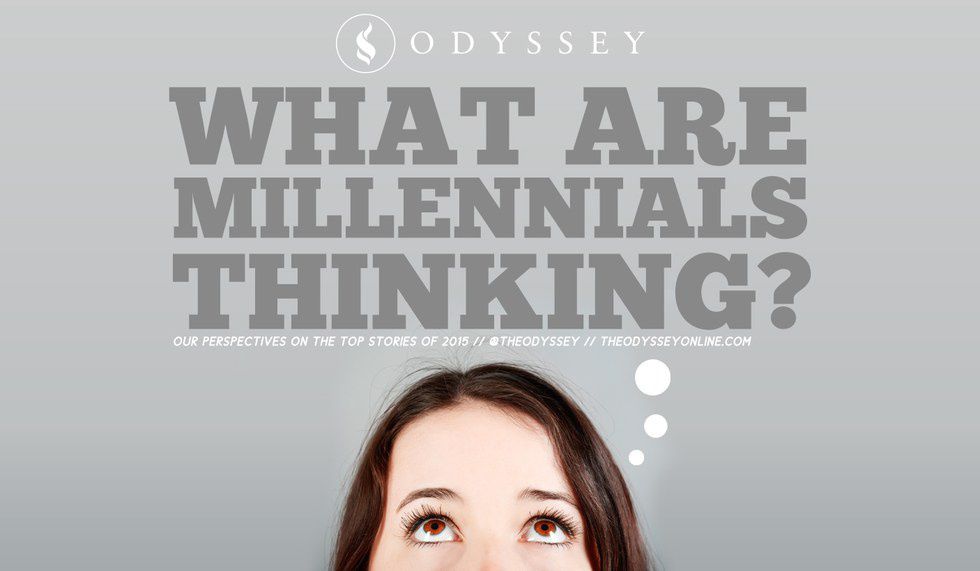CAMPAIGN FINANCE- A GLIMPSE
Right now, Donor A and B each contribute $2,500 per year to Congressman John Doe. Donors A and B are successful businessmen, and although they work in different industries their policy priorities generally align quite succinctly.
Conversely, Donors C - Z are middle-class common folk who work full-time and/or go to school to improve their personal standing. Donors C - Z vary wildly in their job titles, personal background and family life, but their political interests by-and-large align pretty well. While Donors A – Z support the same political party, the interests of Donors A and B don’t always match those of Donors C – Z.
While Donors A and B can easily and consistently contribute $2,500 apiece to Congressman John Doe, Donors C – Z only have about $25 to spare for a politician who supports causes they care deeply about. This means that each year, Donor A and Donor B contribute a combined $5,000 while Donors C – Z contribute a combined $600.
If Congressman John Doe upsets Donor A and B in an attempt to support the interests of Donors C - Z, the Congressman loses out on $5,000 (90%) of his $5,600 total campaign budget and his hopes of reelection are dead before his first debate. If, on the other hand, Congressman John Doe ignores Donors C – Z to appease Donors A and/or B, he loses out on just $600 - about 10% of his total campaign funds. Congressman John Doe knows that if loses the support of Donors C – Z, two quick phone calls will result in his super PAC receiving an influx of about ten times the $600 that he just lost out on by disappointing Donors C – Z.
There you have it, campaign finance in a nutshell. And if this doesn’t seem fair or reasonable to you that is because it’s not fair, nor reasonable. It’s unjust and corrosive, and must be corrected as quickly as possible. But what are our options? Well, a few come to mind…
1. Thanks to the “Citizens United” Supreme Court case decisions, there’s nothing we can do but throw in the towel.
It is true that the Supreme Court decision declaring money is speech and corporations are people has unleashed unprecedented campaign spending in its wake and has been highly detrimental to the cause of democratic elections in the United States, but we can’t just throw in the towel and complain that it’s all doomed. There has to be a way that we can work with this new reality while we continue trying to combat it. Apathy and a defeatist mentality will only continue to make things worse. We have too much at stake to sit idly by as our democratic values continue to fade into the distance.
2. Let’s just eliminate big money contributions, get rid of Donors A and B!
I have to admit, sometimes when I’m frustrated by my own political impotence, barring high-dollar donors can sound pretty tempting. While it can occasionally sound seductive to just eliminate big money from politics, we have to realize that simply is not going to happen at this stage in the game. Any politician who tells you that a Constitutional amendment barring big money from political elections is a legitimate possibility, at this point, is simply lying to your face. Washington can’t agree to get much of anything accomplished these days, so the notion that they are going to all come together to divest themselves of millions upon millions of dollars is truly preposterous. Additionally, the Supreme Court already ruled that monetary donations constitute free speech. Indeed, many people do feel that “voting with their wallet” is a form of free speech, and America’s long tradition of essentially unimpeded free speech has resulted in far more good than bad. We may not always like this particular aspect of freedom, and we may not necessarily agree with the view of money as a form of speech, but that doesn’t mean we can quickly and easily reverse it. Since we can’t simply throw Supreme Court decisions out the door, we have to find a way to work with them. There has to be a more practical way to give common people in the American middle class a say in how their daily lives are governed.
3. Let’s find a way to empower and amplify Donors C – Z.
Rather than trying to put limits on wealthy donors, what we help the rest rise up? We could accomplish this by implementing H.R. 20, the Government By the People Act. This legislation gives everyday American voters a fully refundable $25 tax credit to make small donations to a Congressional candidate of their choice. At the same time, we could match these small donations by as much as six to one. Small-donor matching programs have been successful at the state and municipal levels, and some 2016 presidential candidates have suggested putting in place similar systems. If we want to have any say in the way our lives our governed and the decisions that are made on our behalf, we have to redirect the attention of politicians from K Street to Main Street. H.R. 20 would amplify the voices of Donors C – Z and help return us to a government of, by and for the many, not the money.
To get more information about the Government By the People Act and what it entails, I recently contacted Stevenson University’s delegate in the House of Representatives, Congressman John Sarbanes, about the legislation he has introduced in the House. The transcript of our Q & A can be found below.
*****
Is this legislation modeled on any programs that are currently in practice, inside the United States or elsewhere? How do we know it will be effective once enacted?
Several states and cities across the nation – including Connecticut, Maine and New York City, to name a few – have implemented small-donor matching systems. Connecticut, in particular, began offering a small-donor alternative to big-money politics in 2008. The state provides candidates running for state office with matching funds for small donations. This new system freed legislators from having to depend on large donors and PACs to finance their campaigns, and as a result, the legislature advanced more public policies that benefit everyday people, like implementing mandatory sick leave, adopting a robust Earned Income Tax Credit and increasing the minimum wage. In addition, Connecticut’s small-donor system allowed a more diverse array of candidates – folks who did not have access to the wealthy and well-connected donors that they used to need to finance a campaign – to run for office. Once it had its small-donor system in place, the state legislature experienced a dramatic 29-percent increase in the number of women elected to office. Connecticut illustrates the power of the Government By the People Act to help build a Congress that is not only more diverse, but that also acts in the interest of the many, not the money.
Do we know the expected cost to the taxpayer to fully implement the bill in its entirety? How will the costs be funded? If “closing tax loopholes” is the answer, can you provide some specific examples of what loopholes may be closed?
"The CBO has not yet formally scored the bill. However, we have worked with experts in this field to assemble a series of cost estimates that we think are reasonable. Even on the high end of those assumptions, the cost pales in comparison to the special interest handouts and corporate welfare that are the result of our current system. Inaction is what we cannot afford. And we can offset the cost of this bill by eliminating just a few of the tax and regulatory loopholes that are the decades-old legacy of special-interest influence in Congress, such as eliminating subsidies to the oil and gas industry and ending Wall Street handouts."
What is the threshold that candidates must achieve in order to qualify for public funds?
"Before candidates are eligible to earn the matching fund, the Government By the People Act requires them to raise at least $50,000 from 1,000 donors from within the state in which each candidate seeks election. Additionally, unlike prior public financing proposals, which proposed to provide lump sum grants to candidates upon qualification, the match support provided to participating candidates is contingent upon continued outreach to and support from small-dollar donors. In other words, candidates would have to achieve sustained, broad-based small dollar donor support to continue to receive public matching dollars."
Are there any restrictions on the candidate’s use of public funds while campaigning?
"Existing federal election law – which requires campaign funds only be used for legitimate campaign expenses – would apply to the public funds provided to participating candidates."
What will happen to public funds provided to a candidate that are not used during a certain campaign? Can they be held over to the next campaign if he or she wins election?
"Unspent funds would be remitted to the public fund. Candidates would have the opportunity to retain a modest sum, provided they plan to run under the system in the following cycle. Should the candidate fail to certify as a candidate in the following cycle, the remaining funds would be required to be remitted to the public fund."
This legislation was introduced in early 2014. Can you explain how the bill has progressed since that time? Even though big money in politics is an issue that voters feel strongly about on both sides of the aisle, this bill only has one Republican co-sponsor right now. Is there anything that can be done to bring more Republicans on board?
"Over the last couple of years, we’ve continued to build co-sponsorship for the bill, which recently reached 150 co-sponsors. Additionally, we have a vibrant coalition of outside support, including leading organizations representing the environmental, faith, civil rights and labor communities. In addition, we’ve continued our outreach efforts to Members across the aisle, because, as you’ve highlighted, voters on the left and on the right care deeply about changing the way we finance our democracy. In fact, recent polling shows that in battleground districts, 71 percent of Democrats and 69 percent of Republicans say they would support the Government By the People Act. Illustrating the bipartisan appeal of this reform proposal will be one way to garner more support for this piece of legislation from both sides of the aisle."
Is gaining Republican support the only way that this bill has any chance of passing or do you see another way?
"In Washington, you never know when a window of opportunity to move forward an important piece of legislation will present itself. For the Government By the People Act, it may take some kind of scandal. Or it may have to wait until the majority party in Congress changes. In the meantime, we’re building a large coalition of stakeholders – from good government groups to the environmental community, to civil rights organizations, the labor community and even faith groups – so that when the moment presents to pass this legislation, we’ll be ready for it."




















